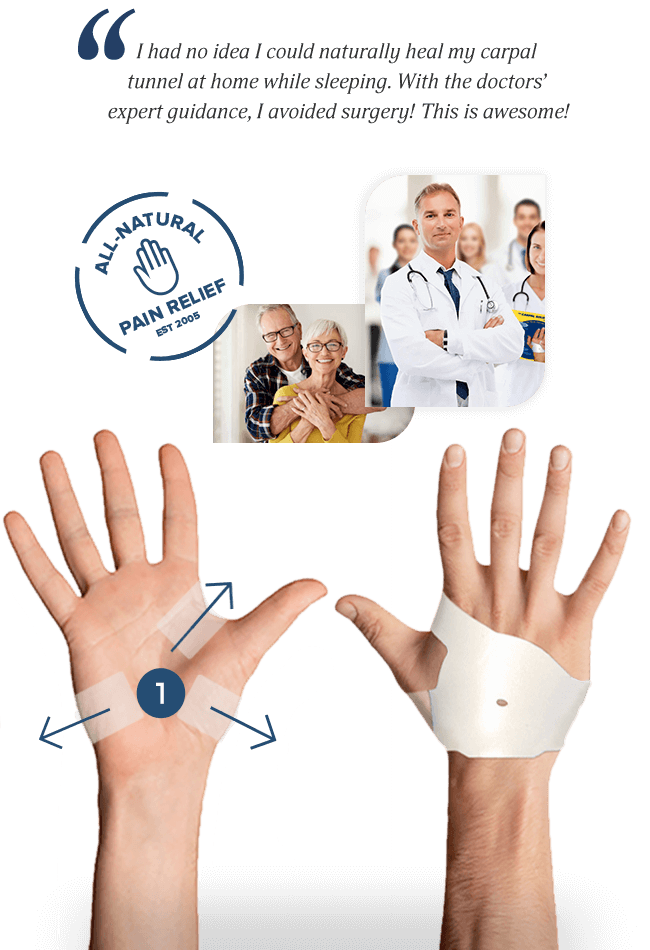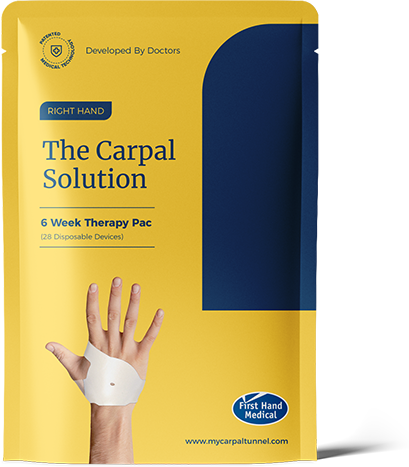The Carpal Solution has Helped to Heal Over 500,000 People with Carpal Tunnel
Reviews of The Carpal Solution Treatment Kit by Real People – Check out the Video Reviews! ——————————————————————————————————————————– “Natural Healing is the best approach for a syndrome caused by trapped inflammation.” Jerome H. Grossman, MD – Director of Harvard’s Health Care Delivery Policy
“I found the Carpal Solution Therapy and started feeling better quickly. Within 3 days I was 80% better. I am not changing my career. I found the Carpal Solution!”
 Marcee – Illinois
Marcee – Illinois
“When I sleep I don’t even know I have it on. I really like the comfort factor.”
 Rita – Staten Island, NY
Rita – Staten Island, NY
“The first day, my hands felt looser and the numbness started going away.”
 Bret – Northport, Alabama
Bret – Northport, Alabama
“I use this for all my patients and most of the time there is a complete resolving of the carpal tunnel syndrome symptoms they have in their hands.”
 Alan Ward, MOTRL – Utah
Alan Ward, MOTRL – Utah

RISK FREE 30-Day UNCONDITIONAL Money-Back Guarantee
The ONLY treatment for carpal tunnel that comes with a no questions asked money-back guarantee and in-house dedicated pain relief team.
HOW IT RELIEVES YOUR WORST SYMPTOMS IN 1 – 3 WEEKS AT HOME
Carpal Tunnel Treatment Kit Works for 97% – Relief Without Risks of Surgery
How it works
1APPLIES TENSION TO 3 KEY AREAS
The Carpal Solution gently stretches three key areas around the carpal tunnel. This restores blood circulation, disperses trapped inflammation, and restore flexibility to injured soft tissue.
2HEALS SOFT TISSUE WHILE YOU SLEEP
Consistent stretching at night of the soft tissue over a 6-week protocol jump-starts your body’s natural healing process. The medical grade adhesive will keep the appropriate tension needed to relieve pressure on the median nerve throughout the night.
3YEARS OF RELIEF
Carpal Tunnel is caused by trapped inflammation. So once your body disperses the inflammation, carpal tunnel syndrome goes away for years and sometimes for good.

The Carpal Solution can relieve symptoms in as little as one week and works for 97% of the people that try it.
Clinically Documented
Doctor Clyde Morgan, DC is a musculoskeletal specialist with over 30 years experience has documented his clinical trial of The Carpal Solution Non-Surgical Therapy for Carpal Tunnel Syndrome.
FDA Registered
The Carpal Solution is manufactured in an FDA registered facility compliant with GMP Standards, Certified ISO 9001 and ISO 13485 in Clean-room / Dry-room environments.
Expert Medical Team
Our medical team has over 300 years of combined medical experience and expertise. Our goal has always been to develop a better first line treatment for carpal tunnel syndrome.

My Carpal Solution

The Carpal Solution Pain Relief Promise
We do more than sell you a natural carpal tunnel home treatment Kit that works. We promise to help you achieve an all-natural solution to this chronic hand condition for life.
A promise that shows we are genuinely here to help:
- 100% Unconditional Money-Back Guarantee
- Proven Therapy Guided by Expert Doctors
- Expertly Trained Customer Service Team backed by Doctors
- Support to Simplify Health Insurance Reimbursement
- ‘No Strings Attached’ Return Policy
- We are your partner, committed to help you avoid the risks and downtime of Carpal Tunnel Surgery.

Jeff Conley
President
First Hand Medical The Carpal Solution

 Created by renowned Harvard health care professionals.
Created by renowned Harvard health care professionals. 
















 Watch Video
Watch Video



